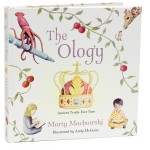History is helpful. It has taught me that there is no such thing as the “good ole days,” the world has always been what it is since sin entered our world, there are ups and downs, and we can have an impact yet never truly change the nature of humans. However, wisdom says that our country is at a uniquely broken place. Any 4th Grader can point out the obvious problems that led to much of this brokenness, yet the church’s role is to provide light out of this hole. I certainly don’t pretend to have all the answers, but maybe this provides some hope to our brokenness.

First, racism is real. Ask any African-American and they have experienced suspicious looks and many have been hassled by police. African-American mothers still have to tell their children to be careful, even around police, because of the color of their skin. The sniper who killed 5 Dallas police officers was clearly killing people because of their race. I was broken-hearted watching Alton Sterling’s son break down at the press conference. I also have a tender-hearted son and have seen him overcome with grief at the loss of a loved one. It is good and right to personalize these incidents and feel them. Further, racism is still racism even if the guy is a felon. The Black Lives Matter movement has been helpful to me to point out this truth. When racism is real we need to acknowledge it and rebuke it. It is good and right and consistent with the gospel of grace to peacefully protest legitimate racism. We need to be united around the idea that racism is real.
Second, racism is sin. At the heart level we fear those that are different and we don’t understand. At the heart level it is easier to draw distinctions rather than unify. It is easier to protect what we know rather than celebrate and learn from those who are different. Ultimately racism is a sin because God has created everyone in His image (Genesis 1:27), thus everyone has equal dignity. God has created my African-American friends with black skin because he thinks it is good and beautiful. Racism is real and it is sin because everyone is created in His image…full of equal dignity.
Third, this truth is where the founders of our country got the idea that “all men are created equal, that they are endowed by their Creator with certain unalienable Rights” (Declaration of Independence). This is truth and should be celebrated. It is also fair to criticize these men for declaring this and fighting for this…all while owning slaves! However, a cynical reading of our country is also not fair because this was a revolutionary step for their era. Further, our country chased this truth until we got it right. We still chase it. Our history is also that thousands of white men took up arms and died, not for their own benefit, but to free African-Americans from slavery! Those ideas were rooted in a Christian worldview and a continued pursuit of those glorious American ideals set forth by the founders….not a rejection of either. We need an honest reading of our history because an overly whitewashed as well as an overly cynical reading is wrong and keeps us from learning the lessons we need to learn.
Fourth, we need to be honest yet not cynical. We need to advocate justice yet not not vilify groups of people. Even if we see something as thematic, we need to honor those whose job it is to protect and serve us. If there is an instance of racism and/or a police officer doing something wrong, we should acknowledge it and demand justice. However, if something is not racism we should not claim it as such. Further, it is wrong to lump all African-Americans into one negative camp, it is equally wrong to do that to police officers. We should be honest about what is wrong, but also see the best in people. It is not honest to paint all or most police officers as racists…it simply is not true. We need to grieve with and stand up for victims of racism, but we also need to esteem the vast majority of police officers who are doing great work. Dallas police officers provided protection for those who were protesting them and then ran to the shooting to protect those who were fleeing! We all have friends who have experienced the injustices of racism, but we also all have friends who are police officers.
Fifth, we need to listen more and hashtag less. It is good and right for us to weep with those who weep (Romans 12:15). It is also good and right to be angry at sin (Psalm 71:11). However, we need to be slow to rush to judgment and anger (James 1:19). The reason why we need to be slow and discerning how we talk about these complex issues is because overly charged emotionalism frustrates people yet does not give them a hopeful outlet. Amping everything up leads to really bad reactions. Amping everything up helps people justify hatred, civil unrest, and even murder. I tend to want to dive into debates, but I am learning to listen and learn before drawing hard lines. We are not listening and learning if we don’t hear that Black Lives Matters is not about dividing people! However, we are also not listening and learning if we don’t hear that Black Lives Matters has the real potential to divide people! I am not fully onboard with that movement (partially because I don’t fully understand the movement), but I am trying to listen to the movement. However, I see a lot of people in that movement (even Christian leaders) who are bullying people who have my same criticisms of Black Lives Matters. Bullying might silence the opposition, but it does not convince minds and change hearts. Patiently hearing and being willing to change your position is the way forward, not throwing social media grenades.
Sixth, tone matters. Amped up social media tone leads to vilifying people (in this case police officers), which is not only wrong but leads to really dangerous places. I was heartbroken over the death of Alton Sterling and really heard the pain in mother’s hearts about how to talk about this with their African-American boys. I don’t know the full context of all of this but the outrage of his death seems very legitimate to me. However, Thursday afternoon I feared that the police as a whole were being vilified. I also feared that this was going to continue to lead to bad places. The vilification of police is having crushing ramifications on the communities that need the police’s help the most! If you have a megaphone, remember that tone matters.
Seventh, focus more on what you can control rather than what you can’t….thus, focus local. What has become increasingly frustrating to me is that I feel like I can’t have an impact on our country’s deepest problems. I can’t fix the problems in our two political parties, I can’t fix racial tensions in Louisiana or Chicago, and I can’t bring about justice in Baltimore. Thus, my focus needs to be on where I can impact. I need to focus on my own city, my own part of town, my own church community, my own family. I need to own my responsibility here! I need to understand racism in my corner of the world. I need to understand the history of Quakertown and Fred Moore High School. I need to try and bring reconciliation and redemption to Goat Man’s Bridge. I can’t become depressed over what I can’t control, but I need to influence what I can! Pray for our nation, but also pray for your own community. Figure out ways to be a blessing to those around you. Listen to those in minority communities. Listen to police officers.
Eighth, focus more on heart change. Jesus always cut to the condition and intentions of the heart. He knew that behaviors are rooted in the heart. Thus, he brought salvation to the heart. We all need to do a hard look at our hearts. A number of years ago I had a couple of Asian men do me wrong. I then met an Asian man and in my heart I was suspicious of him. It honestly surprised me, and I was tempted to justify it, but by God’s grace He quickly convicted me of it as well as giving me understanding about where it came from. I tried to own it at a heart level and repent. Pray for repentance in your own heart on issues of race. Pray that you would be more patient and really hear the other side. Pray that you would love someone enough to try and convince them rather than just beat them. Pray that these victims would be able to forgive. Pray that these killers would be convicted and repent of their murderous hearts.
Ninth, advocate for justice, but also advocate for peace and unity. As you fight for justice, fight just as strongly for peace and unity. Criticize your leaders when they drum up anxieties and fears in order to get votes or win political battles. Fight for justice but make sure your words don’t give license to someone else’s violent actions. Further, fight for justice but make sure it leads to unity.
Tenth, find hope in the multiethnic gospel which produces a multiethnic church and leads us to a multiethnic new heaven and new earth.
Even as I write all these many comments I feel like they are band-aids not ultimate solutions. We have to come to grips with the fact that this problem is never going to be perfectly fixed, yet we should never stop striving for harmony. But where can we look to find hope to this problem? It is certainly not in our political parties which exaggerate these divisions for their own gains. No, the gospel is where we find hope to this issue.
If you are not familiar with the gospel let me share John 3:16, “For God so loved the world, that he gave his only Son, that whoever believes in him should not perish but have eternal life.” Jesus came to die for the entire world…all nations, all colors, all nationalities. This was a radical thing in His day and it remains a radical idea. Jesus died for both the Jews and the Palestinians. He died for Asians, Africans, African-Americans, Caucasians, Hispanics, Europeans, and anyone else you want to put on that list. If you want to stay in your little ethnic camp, you need to understand that this is not God’s will for you. If you long to see a diversity of people living harmoniously together in love and unity then I plead with you to come to Jesus, confess your sins to him, and believe He died on the cross for your sins!
But what does John 3:16 produce? Anyone who surrenders their life to Jesus becomes part of the Church. Further, this church is multiethnic. It is a church that is “neither Jew nor Greek, there is neither slave nor free, there is not male and female, for you are all one in Christ Jesus” (Galatians 3:28). Thus, God’s plan is not to produce Jewish churches or White churches or Asian churches or Black churches. No, Jesus’ gospel is producing one multiethnic church. If you are a Christian and content living out your journey in the comfortable confines of your own cultural traditions, then you are missing God’s plan for you. He wants you to walk with those who are different than you. It is there that you find joy! If you are not a Christian, come for faith, come to church and find a beautiful multiethnic church. As the church is becoming more marginalized and even vilified, it is actually becoming more beautiful! The largest Protestant denomination that was born from being on the wrong side of the slavery debate had an African-American President! Our own little church plant began meeting in a predominately African-American church and I consider their pastor a friend and seek him for wisdom. We are seeing more and more churches have multiethnic leadership teams. Even our own new little church has a mutliethnic staff and I anticipate our first Elder Team to also be multiethnic. If you are not a Christian, and you are longing to see a diversity of people truly loving each other, I want to report that it is happening in the American church! Jesus’ gospel is producing a multiethnic church!
But, I want to give you further hope. Where is this multethnic gospel and this multiethnic church going? Again, God cares deeply about a diversity of people living harmoniously together. This part of His plan for His people, and His assumption is that the world will look differently. In fact, God’s vision of eternity is a multiethnic new heaven and a new earth! Our longing for harmony amongst the ethnicities is good and right. I am here to tell you that there is a day coming when these tensions will not exist anymore! I am here to tell you that God hates this violence and brokenness to the degree that He is going to fix it all. If you want hope for a glorious day of all the ethnicities living in harmony then look to Jesus and hope in heaven. I’ll close with John’s glimpse into heaven found in Revelation 7:9-10. Notice who will be there and if they are unified:
(9) After this I looked, and behold, a great multitude that no one could number, from every nation, from all tribes and peoples and languages, standing before the throne and before the Lamb, clothed in white robes, with palm branches in their hands, (10) and crying out with a loud voice, “Salvation belongs to our God who sits on the throne, and to the Lamb!”









